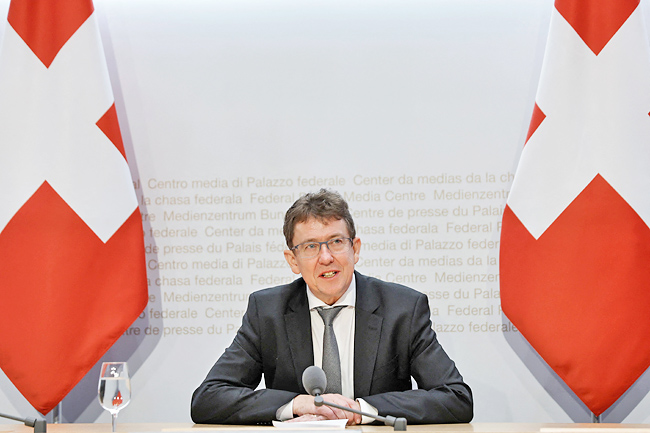GENEVA (AFP) – Signing agreements with the European Union (EU) piece by piece remains a better option for Switzerland than joining the bloc, the Swiss government concluded in a report on Friday.
Thirty years ago, on December 6, 1992, Swiss voters rejected the prospect of joining the European Economic Area (EEA) – giving access to the EU’s internal market.
Three decades on, Switzerland’s Federal Council government assessed the country’s current options with regards to the surrounding bloc, looking at access to the single market, opportunities for cooperation, and foreign policy.
It considered the merits of four options: a free trade relationship, a continuation of the current bilateral approach, EEA accession, and EU accession.
“The Federal Council concludes… that the bilateral approach remains the best solution for Switzerland,” the government said. The EU is Switzerland’s main trading partner, and the wealthy Alpine nation is the bloc’s fourth-largest trading partner.

“In the current global situation, characterised by multiple crises, secure and stable relations between Switzerland and the EU are becoming more important than ever. They guarantee prosperity and stability for both parties.”
But it said that EU membership would go beyond Switzerland’s economic needs, and that Bern’s full participation in European decision-making processes would compensate for the reduction in political room for manoeuvre.
Ties between Brussels and Bern have been strained since Switzerland suddenly decided in May 2021 to end years of discussion towards a broad cooperation agreement with the bloc.
EU-Swiss ties are currently governed by a patchwork of agreements, and for more than a decade discussions were ongoing towards an overarching accord that would have harmonised the legal framework governing the relationship.
But the years of talks on a framework agreement hit an impasse after the EU refused to budge on Swiss demands to exclude key issues relating to state aid, wage protections and freedom of movement.
Since then, Switzerland has been trying to pick up the pieces and establish common ground with the EU through so-called exploratory discussions.





